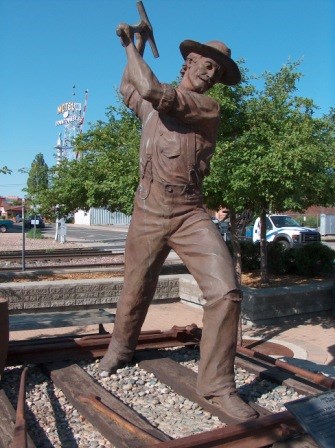Monday, September 28, 2009
The Great Depression
My father was not interested in farming as a boy and after high school, he learned the Morse Code and joined the Canadian National Railway. This was 1929. The market crash did not fully bite on the prairies until the dirty thirties. There was virtually no work for my father. The farms failed, including the farm he grew up on. He tried growing mushrooms and sheep and potatoes in the early thirties as well as the occasional relief telegrapher job, but it was hard, and no one bought his produce. His sheep got maggots, he poured his potatoes down the coal shute into the basement where they rotted and the mushrooms wouldn't produce as advertised. He was scammed by spawn sellers. By 1934, when I was born, he had somewhat steady relief work on the railway but traveled to it extensively, so my mother and I lived with my maternal grandparents for a further three years. The great depression introduced fear into people of that generation that is ill understood today. My father, thoughout his life, had no use for healthy people who did not work. He paid a bill in cash, the day it arrived in the house. He never had a bank loan and never would have had a credit card. He took a two week holiday every year. He rode a bicycle to work for years. He biked because he couldn't afford a car, not because it was politically correct. He smoked a lot, but rolled his own, and used Zig Zag papers because when you laid the cigarette down, it went out, and you could relight it without waste. How could you avoid being raised by this man and not value work!
Subscribe to:
Post Comments (Atom)

















What an interesting man and a very engaging story about your father.
ReplyDeleteGreat story about your father. Depression years were hard times. A couple in my family displayed items from their first years of marriage including their 'washing machine' which was an ancient 'rub board' and their first dishes and a butter churn.
ReplyDeleteI am working on two blogs of the depression years, with ancient family photographs as a tribute to the hard times they endured.